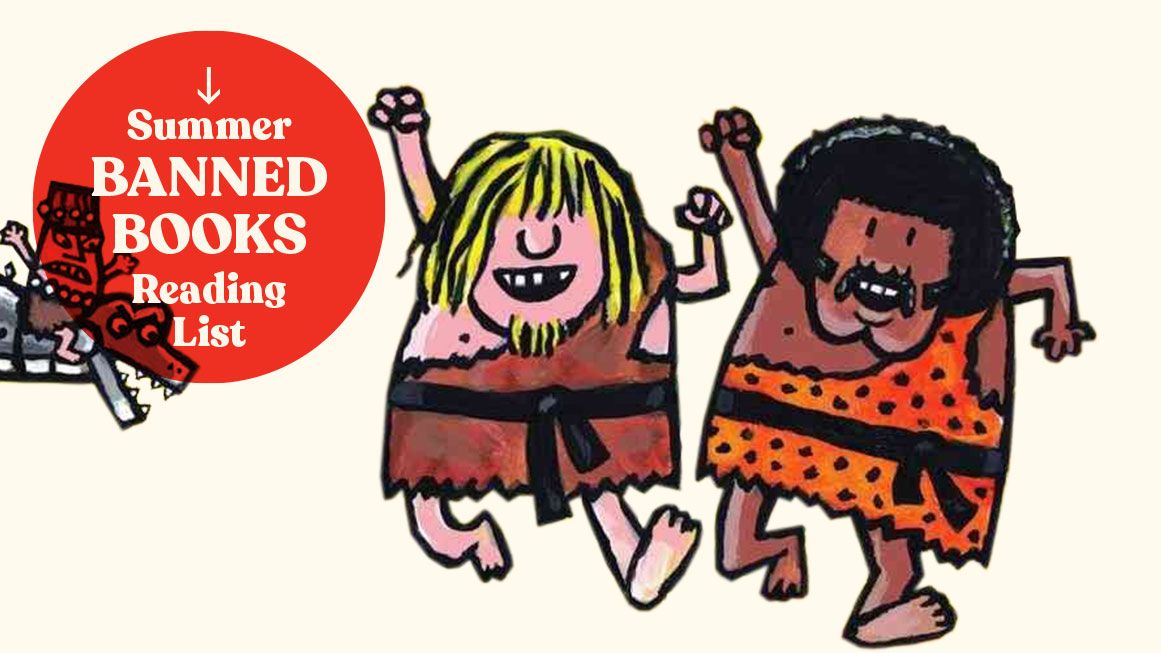Dav Pilkey's The Adventures of Ook and Gluk Is Charming, Not Racist
Pilkey's whole gag is that the censorial impulse is ridiculous and kids instinctively know it should be mocked.

Dav Pilkey has been on the New York Times children's bestsellers list for almost 300 consecutive weeks. Thanks to the power of potty humor, his beloved character Captain Underpants has converted most of the young boys in my life—and a not-insignificant number of girls—from nonreaders to readers.
Pilkey is no stranger to cancellation campaigns. The inciting incident of his entire career is the detention he received for his youthful forays into recreational illustration. Graphic novels that repeatedly lampoon the arbitrary tyranny of school authorities are bound to come in for a certain amount of scrutiny from those same tyrants. Complaints about the Captain Underpants series collected by the American Library Association's Office for Intellectual Freedom fret that the books contain "offensive language" (such as "reference to undergarments") and "partial nudity" (at one point, our hero loses the aforementioned undergarment and is left wearing a barrel).
The first book of the series comes with a "Sturgeon General's Warning" noting that "some material in this book may be considered offensive by people who don't wear underwear." Pilkey's whole gag is that the censorial impulse is ridiculous and kids instinctively know that it deserves to be mocked.
But in 2021, Pilkey and his publisher made an abrupt about-face, pulling a book in the series, The Adventures of Ook and Gluk: Kung-Fu Cavemen from the Future, off the shelves and out of production. The decision came just days after the shootings at massage businesses in Atlanta, which were widely and flimsily blamed on anti-Asian animus. The proximate cause of the decision was a Change.org petition accusing the 2010 book of trafficking in racist stereotypes, seemingly because kung fu Master Wong is drawn with slanted eyes and because the book contains punny riffs on Chinese proverbs.
I am quite familiar with the text, because I have read it to my son approximately 87 trillion times. Like its predecessor, it comes with a warning—this one from a fictional professor named Gaylord M. Sneedly—that it "contains many scientific errors and stuff." But it is a charming romp, not a racist rant; it just happened to be the sacrificial lamb in a moment of heightened emotion after genuine tragedy.
Billy Kim, the person behind the campaign and a Korean-American father of two, asked in an interview with The New York Times, "How is it in the last 10 years nobody said anything about it?" Great question.
This article originally appeared in print under the headline "The Adventures of Ook and Gluk: Kung-Fu Cavemen from the Future."


Show Comments (33)